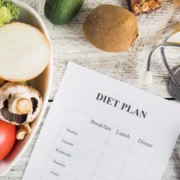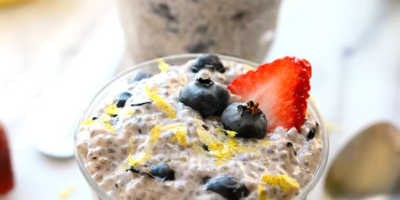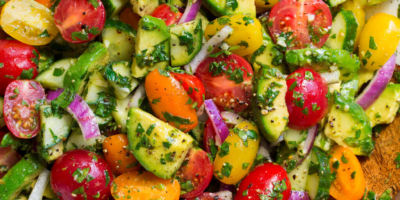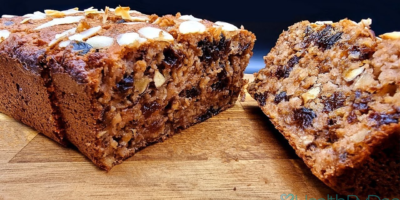Constipation can be a frustrating and uncomfortable experience, but there are effective ways to relieve constipation that can help restore your digestive health. By understanding various constipation remedies, you can take proactive steps to alleviate symptoms and improve bowel function. Incorporating a diet for constipation that includes plenty of fiber-rich foods is essential, as increasing fiber intake can significantly enhance your digestion. Additionally, natural constipation relief can often be achieved through hydration and the use of probiotics for constipation, which support a healthy gut flora. With these strategies in mind, you can tackle constipation head-on and find relief from this common ailment.
When discussing digestive issues, one term that often arises is irregular bowel movements, commonly referred to as constipation. This condition, though often temporary, can lead to discomfort and other health concerns if not addressed properly. To combat this issue, individuals can explore various dietary adjustments and lifestyle changes that promote regularity. From increasing fiber consumption to incorporating beneficial microorganisms in the form of probiotics, there are multiple avenues to pursue for enhancing gut health. Understanding these alternative terms and approaches can empower you to effectively manage and overcome constipation.
Constipation and Its Causes
Constipation is a common condition affecting many individuals, characterized by infrequent bowel movements and difficulty in passing stools. Understanding the causes of constipation is crucial for effective relief. Factors such as insufficient fiber and fluid intake, a sedentary lifestyle, pregnancy, old age, certain medications, and even health conditions like hypothyroidism can all contribute to this uncomfortable condition. Recognizing these triggers allows individuals to make informed lifestyle changes that can mitigate the risk of constipation.
In many cases, constipation can result from dietary choices. A diet low in fruits, vegetables, and whole grains deprives the body of essential fiber, which is a key player in promoting healthy digestion. Additionally, dehydration can exacerbate the situation, as water is vital for softening stool. By identifying and addressing these causes, individuals can take proactive steps towards improving their bowel health.
Ways to Relieve Constipation Effectively
There are numerous ways to relieve constipation, with dietary adjustments being among the most effective methods. Increasing fiber intake is crucial, as it helps bulk up the stool and promotes regular bowel movements. Foods rich in fiber such as whole grains, legumes, fruits, and vegetables should be staples in your diet. For instance, incorporating Jerusalem artichokes, broccoli, and flaxseeds can make a significant difference in your digestive health.
In addition to fiber, hydration plays a pivotal role in preventing constipation. Drinking 2.5-3 liters of water daily is essential for maintaining optimal bowel function. Water aids in softening the stool, making it easier to pass. It’s important to note that not all liquids contribute to hydration; sugary drinks and caffeinated beverages should not be relied upon as substitutes for water.
The Role of Probiotics in Constipation Relief
Probiotics have gained attention for their potential benefits in digestive health, particularly for those suffering from constipation. These beneficial bacteria help balance the gut microbiome, which can improve bowel regularity. Foods rich in probiotics, such as plain kefir and homemade yogurt, can be excellent additions to your diet. They not only support digestion but also enhance nutrient absorption, which is vital for overall health.
Incorporating probiotics into your daily routine can provide natural constipation relief. When choosing probiotic products, opt for those that do not contain added sugars, as these can undermine the health benefits. Consuming yogurt fermented with probiotic cultures can be particularly effective, as it offers a dual benefit of fiber and probiotics, promoting a healthy gut environment.
Lifestyle Changes to Prevent Constipation
Adopting certain lifestyle changes can significantly help prevent constipation. Regular physical activity is one of the most effective strategies. Aim for at least 30 minutes of moderate exercise each day, such as walking, which stimulates the digestive system and promotes regular bowel movements. A sedentary lifestyle can lead to sluggish digestion, making it crucial to incorporate movement into your daily routine.
Additionally, establishing a consistent bathroom routine can aid in relieving constipation. When you feel the urge to defecate, it’s important to respond promptly rather than postponing. This helps train your body to recognize and respond to bowel signals, leading to improved regularity over time. Combining these lifestyle practices with a fiber-rich diet and adequate hydration can create a comprehensive approach to digestive health.
Importance of Fiber in Your Diet
Fiber is an essential component of a healthy diet, playing a key role in preventing and relieving constipation. There are two types of fiber: soluble and insoluble. Soluble fiber absorbs water and forms a gel-like substance, which can help soften stool, while insoluble fiber adds bulk to the stool and aids in moving it through the intestines. Foods like oats, beans, and fruits are excellent sources of soluble fiber, while whole grains and vegetables provide insoluble fiber.
To effectively increase your fiber intake, gradually incorporate high-fiber foods into your meals. Aim for a daily intake of 25-30 grams of fiber, which can be achieved by including a variety of fruits, vegetables, nuts, and whole grains in your diet. This not only aids in easing constipation but also contributes to overall digestive health and wellness.
Hydration: The Key to Digestive Health
Staying adequately hydrated is crucial for maintaining healthy digestion and preventing constipation. Water plays a vital role in the digestive process, as it helps to dissolve nutrients and fiber, making them easier for the body to absorb. Additionally, water softens waste material in the intestines, preventing hard stools that are difficult to pass. It is recommended to drink at least 2.5-3 liters of water daily to support optimal bowel function.
Incorporating hydrating foods into your diet can also help meet your fluid needs. Fruits and vegetables such as cucumbers, watermelon, and oranges contain high water content and contribute to overall hydration. Avoid excessive consumption of caffeinated beverages and alcohol, as these can lead to dehydration. Prioritizing hydration is a simple yet effective way to promote digestive health and alleviate constipation.
Natural Remedies for Quick Constipation Relief
For those seeking natural constipation relief, several remedies can be easily incorporated into daily routines. One effective approach is to consume a mixture of warm water and lemon juice in the morning, which can stimulate digestion and promote bowel movements. Another popular remedy is to consume fiber-rich foods like chia seeds or flaxseeds, which can absorb water and expand in the gut, aiding in stool passage.
Additionally, herbal teas such as peppermint or ginger can provide soothing effects on the digestive system. These natural remedies not only help relieve constipation but also promote overall gut health. It’s important to remember that while these methods can be effective, they should be part of a broader approach that includes dietary adjustments and lifestyle changes.
When to Consult a Doctor for Constipation
While constipation is often manageable with lifestyle and dietary changes, certain situations warrant a consultation with a healthcare professional. If constipation persists for more than three weeks, is accompanied by severe abdominal pain, blood in the stool, or unexplained weight loss, it is crucial to seek medical attention. These symptoms could indicate a more serious underlying condition that requires further investigation.
Additionally, if over-the-counter remedies and lifestyle changes do not lead to improvement, a doctor can provide tailored advice and explore other treatment options. Chronic constipation may be a sign of an underlying health issue, and addressing it early can prevent complications. Always prioritize your health and consult a professional when in doubt.
The Connection Between Stress and Constipation
Stress can significantly impact digestive health, often leading to constipation. The body’s stress response can alter gut motility and affect the balance of gut bacteria, contributing to irregular bowel movements. High-stress levels can trigger the release of hormones that slow down digestion, making it essential to find effective stress management techniques to support overall digestive health.
Practicing relaxation techniques such as yoga, meditation, or deep breathing exercises can help mitigate stress and improve gut function. Additionally, engaging in regular physical activity not only reduces stress but also promotes healthy digestion. By addressing both stress and dietary habits, individuals can create a holistic approach to preventing and relieving constipation.
Frequently Asked Questions
What are effective constipation remedies to try at home?
Effective constipation remedies include increasing your fiber intake through foods such as fruits, vegetables, and whole grains. Additionally, drinking plenty of water—about 2.5 to 3 liters daily—can help stimulate bowel movements. Regular physical activity, even a 30-minute walk, can also promote digestive health.
How can I create a diet for constipation relief?
To create a diet for constipation relief, focus on incorporating fiber-rich foods like dried legumes, whole grains, and plenty of fresh fruits and vegetables. Foods such as broccoli, zucchini, and flaxseeds are particularly beneficial. Don’t forget to stay hydrated and consider adding probiotics for constipation relief.
What foods can I include to increase fiber intake for constipation?
To increase fiber intake for constipation, include foods such as Jerusalem artichoke, Brussels sprouts, almonds, and flaxseeds in your meals. Also, aim to consume whole grains and a variety of fresh fruits and vegetables, which are excellent sources of dietary fiber.
Are probiotics for constipation effective?
Yes, probiotics for constipation can be effective. Foods rich in probiotics, like plain kefir and homemade yogurt, help maintain gut health and promote regular bowel movements. Incorporating these into your diet can contribute to natural constipation relief.
What are some natural constipation relief methods?
Natural constipation relief methods include increasing water intake, consuming high-fiber foods, engaging in regular physical activity, and incorporating probiotics into your diet. Additionally, responding promptly to the urge to defecate can also help alleviate constipation.
How can a sedentary lifestyle contribute to constipation?
A sedentary lifestyle can contribute to constipation by slowing down digestive processes and reducing bowel movements. Engaging in regular exercise, such as walking for at least 30 minutes a day, can enhance gut motility and help relieve constipation.
What role does hydration play in relieving constipation?
Hydration plays a crucial role in relieving constipation. Drinking sufficient water helps soften stool and promotes regular bowel movements. Aim for 2.5 to 3 liters of water daily to support digestive health and prevent constipation.
Can changing my eating habits help with constipation?
Yes, changing your eating habits can significantly help with constipation. Incorporating more fiber-rich foods, staying hydrated, and including probiotics in your diet can improve bowel regularity and help alleviate constipation symptoms.
What should I do if I experience chronic constipation?
If you experience chronic constipation, it’s essential to consult a healthcare professional. They can evaluate your diet, lifestyle, and any underlying health issues. Meanwhile, focus on increasing your fiber intake, staying hydrated, and maintaining regular physical activity.
What are the best fruits for constipation relief?
Some of the best fruits for constipation relief include apples, pears, berries, and prunes. These fruits are high in fiber and can help promote healthy bowel movements when included in your diet.
| Key Points | Details |
|---|---|
| Understanding Constipation | Constipation is a common issue often caused by a lack of movement and can either be temporary or chronic. |
| Symptoms | Common symptoms include headaches, irritability, abdominal bloating, and changes in bowel habits. |
| Causes | – Insufficient fiber and fluid intake – Sedentary lifestyle – Pregnancy – Old age – Certain medications – Hypothyroidism |
| Prevention and Relief Tips | 1. Drink 2.5-3 liters of water daily. 2. Engage in at least 30 minutes of walking. 3. Include fiber-rich foods in your diet: legumes, whole grains, vegetables, and fruits. 4. Consume probiotics like plain kefir and homemade yogurt. |
| Bathroom Habits | Do not postpone the urge to defecate. Consult a doctor for medications if necessary, but avoid long-term use without guidance. |
Summary
Ways to relieve constipation can significantly improve your overall wellbeing. Constipation, while often temporary, can lead to various discomforts and health issues if not managed properly. By increasing your water intake, engaging in regular physical activity, and consuming a fiber-rich diet, you can effectively prevent and relieve constipation. Incorporating probiotic foods and maintaining healthy bathroom habits are also essential steps in addressing this common issue. Always consult with a healthcare professional if symptoms persist.















Comments